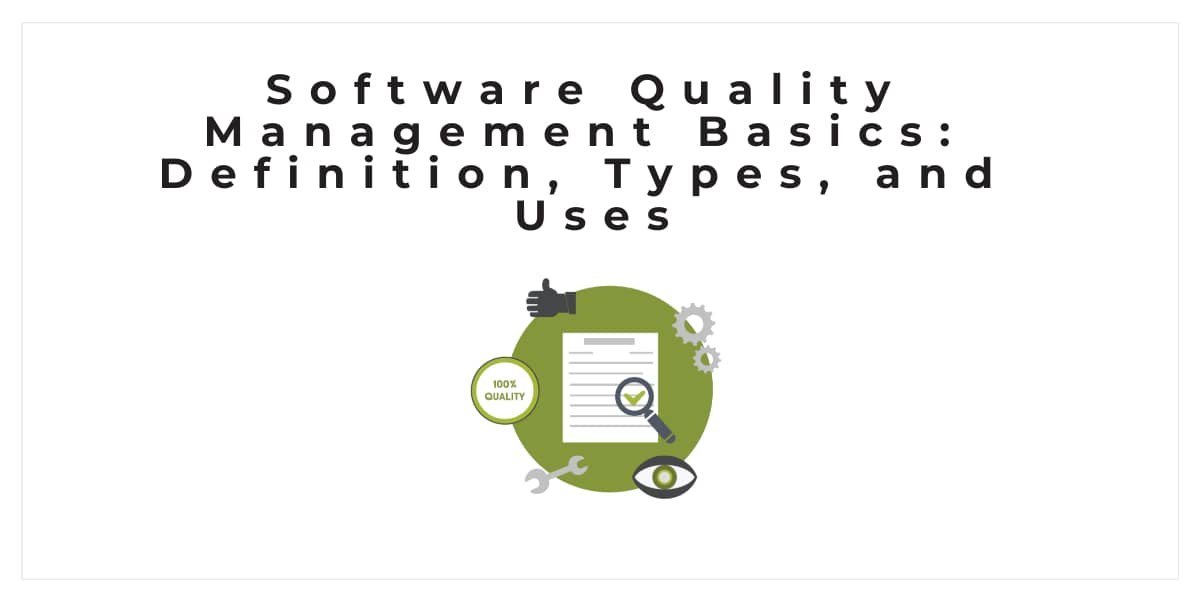Developers should consider a variety of aspects while creating an app, including the front-end framework they choose and the size restrictions. To guarantee there are no bugs or faults, testers must do their duties with almost flawless accuracy. They could need to do several tests, such as UI and web browser testing. Nobody wants to place their dinner order on a frozen app every time they attempt.
How can you be certain that your app is at the top of the client happiness scale? And here is where the quality of the software comes in. The subtleties of software quality management, as well as its advantages and best practices, will be examined in this lesson.
Software Quality Management: What Is It?

Software quality is the level of the correctly developed software. Quality software meets requirements, and expectations, and is maintainable. Additionally, everything is supplied on schedule and budget. In the original perspective, quality is hard to define yet discernible when it is there.
Therefore, it is essential to have an effective process for managing software quality to guarantee that both the finished product and the processes used to create it are of a high caliber. Software Quality Management (SQM) is the thorough procedure that guarantees a software product complies with all applicable local, national, and international standards in addition to its need specifications.
Software Superior product and service quality is ensured through quality management. The degree of client happiness serves as a barometer for success. Quality assurance, planning, and control are all goals of software quality management.
Software Quality Assurance
The goal of software quality assurance (SQA) is to make sure the final product is up to par with the standards set out by the business. SQA is a group of processes that guarantees everyone working on the project has precisely followed all guidelines and procedures.
Concurrent with software development, SQA is a continuous procedure that is employed across the whole software development life cycle. Software quality assurance inspects for flaws with quality throughout each stage of development rather than after completion. The ultimate objective of SQA is to identify flaws and weaknesses in a product before the broader public does.
Get help with quality assurance from a professional team by visiting: https://wesoftyou.com/services/quality-assurance/.
Quality Planning
Quality Planning What about the code's modularity; can different places call for the same function, or do your engineers have to write new code each time? How reliable is your website under heavy user traffic? Planning and management for quality have a role in providing the answers to these kinds of issues. You handle several issues, such as the market your product is intended to dominate, the timing of new updates, handling possible hazards, having quality objectives, and creating the necessary risk management strategy.
Quality Control
The creation of software products is the subject of software quality control (SQC). It assesses and regulates the software's quality while it is being created. All operational methods and actions utilized to meet quality standards are included in QC. Before project work begins, the customers and/or other stakeholders must be informed of and given their approval for the project's planned methods and procedures.
Specific functional criteria and non-functional needs like performance, usability, and supportability are all covered by software quality control. It also refers to the software's capacity for success in unexpected circumstances and for preserving a relatively low failure rate.
Conclusion
One of the most contentious issues in software development is still testing. To save a little more money, many company owners of items question the process' worth as a distinct step.
Contrary to common belief, quality assurance and testing have a greater impact on the success of the final product than problem detection alone. QA engineers bring value to the software and guarantee its top-notch quality since they have a thorough grasp of both the client's company and the product itself. Additionally, by making use of their in-depth product expertise, testers may give value to the consumer via extra services like hints, instructions, and product manuals. This lowers the cost of ownership and boosts corporate productivity. If you want to implement it in your workflow - contact us and we will help you make your product high-quality and unique.
Thank you for reading up to this point. We hope that this article has helped you acquire a basic knowledge of quality management.








